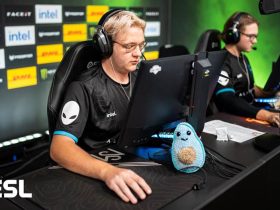The illegal trade in tax-evading cigarettes has exploded in the past year, as criminals flood South Africa’s retail market with illicit tobacco, according to a major new study by independent market researchers Ipsos. The government’s lifting of the tobacco sales ban roughly 18 months ago has done little to curb the illegal trade’s rampant growth.
The latest study by Ipsos – a global leader in market research – shows:
- A shocking four out of five stores in the Western Cape (80%) now sell cigarettes below the Minimum Collectible Tax (MCT) rate of R22.79 per pack, as do almost 70% of outlets in Gauteng, a significant increase compared to previous research
- The number of garage forecourts across the country selling illicit cigarettes has quadrupled in the last year – despite the 2020 sales ban having been lifted
- A single pack of 20 cigarettes is now on sale for as little as R7 in many retail outlets nationwide. This is less than a third of the MCT, and down even further from R8, which was the lowest price found in the October 2021 study
- Products bearing trademarks licensed to or owned by Zimbabwe-based Gold Leaf Tobacco Corporation (GLTC) and Carnilinx, a member of South Africa’s Fair-Trade Independent Tobacco Association (FITA), continue to win this illegal price war.
“The latest Ipsos study provides compelling evidence that criminals continue to dominate South Africa’s tobacco trade,” says Johnny Moloto, general manager of British American Tobacco South Africa.
“These criminals are hiding in plain sight, robbing the fiscus of vital revenue when it is needed most. They are destroying legitimate businesses and jobs while national unemployment rates hit record highs.”
Ipsos conducted its fifth study of this kind between 2 and 21 March 2022. Looking at 4,593 nationwide retail outlets, the study asked ‘mystery shoppers’ to buy the cheapest cigarettes available at an outlet.
Ipsos researchers found that the vast majority of stores in hotspot provinces – the Western Cape (79%), the Free State (74%) and Gauteng (69%) – sold cigarettes below the Minimum Collectible Tax (MCT), proving that the manufacturers could not have paid due taxes on these products.
MCT refers to the minimum amount of tax owed to SARS by a tobacco manufacturer per pack of 20 cigarettes. At present, MCT is calculated at R22.79, which does not include production costs, nor profit for the manufacturer. Cigarette packs that sell for less than the MCT should be considered illegal, as this means the manufacturer has not paid the minimum amount of duties to SARS.
“If our country is to prosper and present itself as worthy of investment, the criminal manufacturers flooding our market with illicit tobacco should be tackled as a matter of utmost urgency,” says Moloto.
The number of stores in Western Cape and Gauteng selling illicit cigarettes has risen significantly since Ipsos’s study a year ago, which was conducted soon after criminal manufacturers seized control of South Africa’s cigarette market as a result of the government’s lockdown ban on legal tobacco sales.
The latest study shows that brands owned by or licensed to GLTC Zimbabwe are the most widely available at illegal prices, with almost half (44%) of purchases made below MCT. Purchases below MCT of brands owned by or licensed to GLTC South Africa rose by 17% in the last year.
More than half (52%) of purchases of brands owned by Carnilinx were below MCT.
Although Pall Mall, owned by BATSA, was the cheapest available brand in 642 stores (around 14% of total stores included in the sample), none sold the brand below the MCT.
“Tax-evading cigarettes have been allowed onto South Africa’s shop shelves for far too long. They are depriving the fiscus of more than R19 billion a year. For the sake of our economy, the people it is meant to serve and the rule of law, authorities should put an end to this brazen criminality once and for all,” concludes Moloto.
























Leave a Reply